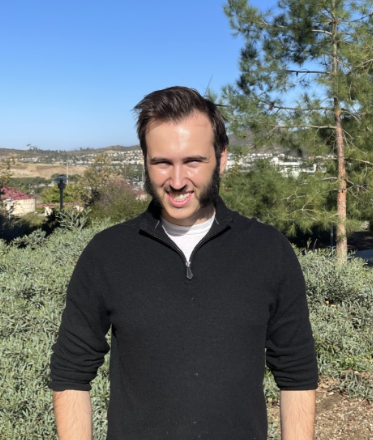What is the speech and debate club, and what do you guys do?
An analogy I would give for our club is that it is similar to something like track and field. You are running and doing hurdles, but there are many smaller events within it—hundred-meter dashes, relays—and speech and debate is like that too. For example, there are events that focus on impromptu speaking, where you get a couple of minutes to prepare a seven-minute speech. Then there are our regular debate formats, like IPDA (International Public Debate Association), where you prep for thirty minutes and then do a thirty-minute debate on a topic assigned to you and an opponent. We compete at tournaments for those events and others, competing against community colleges and other four-year universities throughout San Diego and Los Angeles.
It is a great opportunity for those who want to develop their public speaking skills. Although it is a competitive environment, we also want to help anyone strengthen their public speaking skills.
That is what our club is really about.
Could you give a more detailed description of one of those events?
Sure. One that I like to do, which I’ve been doing for a long time, is extemporaneous speaking. It’s what we would call a “limited prep event” which means you must give a speech on something that is not memorized or prepared. So, in an extemporaneous speech debate, you go into a round, and they give you a list of three topics,—usually in the form of a question about a current political issue, so you might give a speech about the 2024 election or a piece of legislation going through congress—and you research that topic for thirty minutes before giving a seven-minute speech on it. And, after a few rounds of those, people are ranked based on their performance. So that is an extemporaneous speech debate, and they help you practice thinking and researching quickly. Those are some of the skills you get out of a limited prep event.
So, what would you say are some of the outcomes people can expect from joining the club?
I would say our club is something very beneficial for anyone. However, I think that if you are interested in getting an education after college—like going to graduate school, or getting a master’s—it will help you hone many of the same skills needed for those programs. Much of graduate school is doing research and writing papers, and people in speech and debate develop very strong research and presentation skills. So, it’s very beneficial for most graduate programs, especially law school. Lawyers need great speaking skills.
And besides more practical skills for the workplace, speech and debate can help build your confidence and self-esteem. So, there is also a real, everyday benefit to what we do in our club.
Why are you starting the club back up?
I am starting the club back up because I believe there is great value in doing speech throughout college. Most people fear public speaking; but since it is such a necessary skill in workspaces and everyday life, clubs like ours are a great environment to improve that skill.
I also wanted to bring it back just because I love the community of speech and debate, and the competition and community that is brought up in it. There are also a lot of practical skills that are developed through (speech and debate), and I wanted to bring that community and those skills back to our campus.
How can people join and get involved?
There are a few ways. We just finished all our organizational requirements and are now a registered club on campus, so people will soon be able to find us in the club directory. They can also speak with our advisor, Nicholas Thomas, or myself. Finding us on campus can be a bit difficult, so the club directory will be the best way. We are also planning on holding other larger events to get people interested and signed up, such as working with the political science organization to do mock debates, among other things.
Anything else you would like to share about the club?
We are looking to expand debate to be more of a participatory thing. People tend to be a bit intimidated by speech and debate because it seems like a very academically rigorous and exclusive thing, but we don’t want to give that impression at all. We want to show that, regardless of their experience with speech and debate, everyone will be accepted at all skill and experience levels. So, I would say we want our club to be as welcoming as possible, and to encourage as many people as possible to join our club.
Sounds great. Thank you for doing this interview.
You’re welcome. Thanks for having me.


